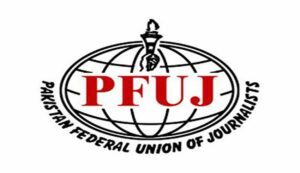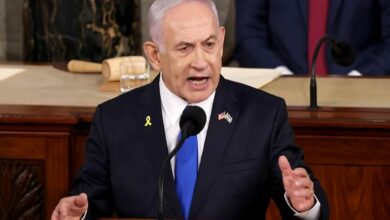PFUJ rejects recently passed controversial amendments to the Prevention of Electronic Crimes Act
Islamabad: According to Dawn, the recently enacted contentious modifications to the Prevention of Electronic Crimes Act (Peca) have been rejected by the Pakistan Federal Union of Journalists (PFUJ), which sees them as a danger to democracy, freedom of speech, independent media, and people’s right to know.

It demanded that the Peca legislation, which it claims was hurriedly approved by the Pakistan Muslim League-Nawaz (PML-N) government, be immediately repealed and referred to as “martial law for media.”
Following the end of its three-day Biannual Delegates Meeting (BDM) in Islamabad, where it voted on many resolutions addressing the harsh legislation and expressed worries over media worker layoffs and journalist safety, the PFUJ released its statement.
The PFUJ blasted Pakistani officials for applying pressure on media outlets via government ads. Referring to the resolution drafts voted at the conference, the Dawn article described the Peca legislation as the worst martial law for the media in Pakistan, endangering not just freedom of speech, freedom of the press, and people’s right to know, but also democracy.
According to the statement, “The PFUJ calls for the immediate repeal of the contentious PECA law, which it believes was enacted in a hurry by the current PML-N coalition government and imposed martial law on the media.” In order to choose a course of action, the PFUJ decided to discuss all of these concerns in a meeting of the Joint Action Committee of Media stakeholders.
The resolution emphasized that the legislation had exclusively targeted critical and opposing voices during the previous eight years, rejecting the government’s argument that it was adopted to combat the threat of “fake news” and misinformation.
It said, “The worst part is that Peca is the continuation of black laws like the Press and Publication Ordinance, 1963 and the Pakistan Electronic Media Regulatory Authority, PEMRA, 2001.”
The government’s decision to ban Dawn’s ads was criticized in one of the PFUJ resolutions for its “professional and critical approach in reporting and editorials.” The PFUJ also linked journalist safety and protection to the relationship between the government and the media.
In addition to being slain in unprecedented numbers in Pakistan last year, journalists were also charged with narcotics offenses, blasphemy, and the Anti-Terrorism Act, according to a PFUJ statement. The case against Matiullah Jan in Islamabad for criticizing the government was also mentioned.
It said that the government had been asked to release the law’s draft by PFUJ and other media players. Dawn said, “It seems that some ‘hidden hands’ prevented the government from disseminating such a draft and passed the law.”
In a different resolution, the PFUJ voiced its displeasure with the government’s lack of action to guarantee journalists’ safety and security. According to PFUJ, ten journalists have been slain since 2024, but the attackers have eluded authorities. The move by the Balochistani administration to close the Quetta Press Club and prevent it from holding a program even though it had previously been granted permission was also criticized.





